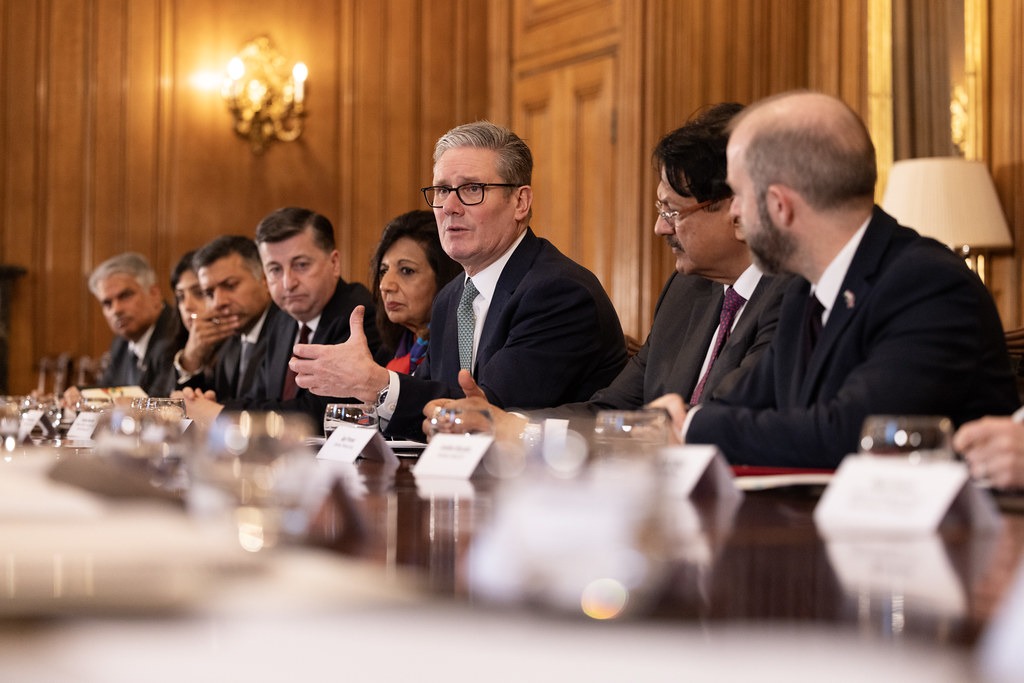New deals, new direction for UK trade
Prime Minister Keir Starmer hopes that recent trade deals with India and the United States have charted a novel course for the British government, reinvigorating UK trade relationships which were in hibernation.
The emergence of the new trade deals follows years of trade stagnation after the COVID-19 pandemic. ‘New premier, new economy’ has been a staple of change that helped Starmer get elected in July of last year. UK Chancellor Rachel Reeves has since steered a path towards more economic stability in the country after the turbulence of Tory economic policy in the past 5 years.
Regulatory reforms to emphasise economic growth and a £4.5 million plan last year to secure foreign investment in the science and technology sectors have made some modest improvements in the country’s financial outlook. Working alongside the Prime Minister, Reeves argues they were elected with a mandate to revitalise our declining economy.
Despite this, in a Times survey in mid-December of last year, 31% of Britons said they were optimistic about the future under Starmer, whilst 37% said they were not. His pragmatic and result-driven leadership on the economy has not yet proven significantly popular. It is hoped the trade deals may reaffirm Britain’s relevance as a global economic player and reassure voters that our economy won’t falter in the age of trade uncertainty caused by President Donald Trump.
Deals that maximise benefits to Britain with zero sacrifice are not currently possible within the global economic climate.
One of the most significant successes across both deals relates to the automotive industry. Starmer negotiated the 27.5% US tariff on cars down to 10% with a maximum quota of 100,000, with the additional cars still subject to the 27.5% tariff. Additionally, India cut their 100% automotive tariffs to 10%.
“This is going to boost trade between and across our countries. It’s going to not only protect jobs, but create jobs, opening market access,” said Starmer, at a press conference at The White House.
In his deal with India, Starmer has reduced their tariffs on UK imports in key areas such as cosmetics, spirits and electrical machinery. Tariffs on whiskey and gin fell from 150% to 75%, with a further decrease to 40% after 10 years.
In the U.S. deal, the Prime Minister managed to negotiate the removal of the 25% tariff on British Steel and Aluminium alongside the reductions in tariffs on automotives from the UK, while crucially ensuring the UK digital services industry remains untouched.
However, critics of the trade deals say that Starmer has sacrificed some longstanding positions around visa requirements and labour standards to carry them out. Conservative Party Leader Kemi Badenoch has suggested that the UK-India trade deal has allowed special provision to Indian Nationals working temporarily in the UK, allowing them to avoid paying National Insurance contributions for three years.
Starmer seems to have made a shrewd, if more tentative, investment in the future of Britain
“The government tried to obscure a two-tier tax arrangement, while the Indians claimed it as a ‘unprecedented victory’,” she wrote in an article for The Telegraph.
The India–United Kingdom Free Trade Agreement also lacks binding enforcement around labour protections, meaning UK firms have the potential to be undercut by international competitors when it comes to production.
These deals are occurring at a time of geopolitical upheaval. The United States, as the most robust economy in the world, has upset global economic relationships with a tariff policy that reverberated across continents. Deals that maximise benefits to Britain with zero sacrifice are not currently possible within the global economic climate.
Considering this, Starmer seems to have made a shrewd, if more tentative, investment in the future of Britain with the deals. Though they may come with some pain for Britain’s domestic workers, they seem to present some financial solutions for British exports, which would otherwise have been hampered by tariffs, bringing much-needed revenue from exports back into the country.

Comments